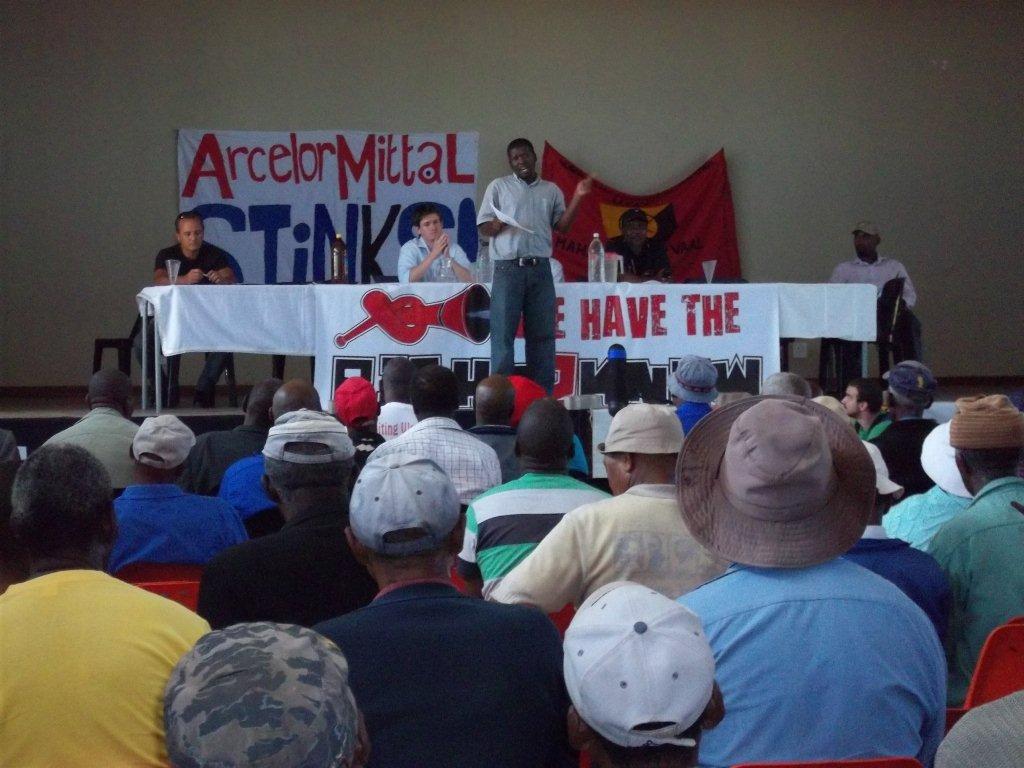|
29 March 2011
The Right2Know Campaign celebrates Human Rights Day
On 21 March 2011 South Africa celebrated Human Rights Day. The day is used as an opportunity for South Africans to celebrate their hard-won human rights, as enunciated fully in the Constitution of the Republic of South Africa, and as a symbolic commitment to ensuring that the human rights abuses of the past never occur again. The day also marks the Sharpeville Massacre of 1960, which occurred after the Pan-African Congress arranged a march to local police stations in protest of pass laws that resulted in the loss of 69 lives, with injury to 180 due to the actions of a brutal Apartheid regime.

On 21 March 2011 SAHA co-hosted a human rights event in Sebokeng Zone 17, alongside the Gauteng branch of the Right2Know Campaign (as represented by the Freedom of Expression Institute, CIVICUS and others). The event was well-attended, with around 100 community members joining the celebration of our human rights. There was also an extensive media interest. The event included talks on access to information by Dale McKinley (of the Anti-Privatisation Forum), freedom of expression by Siphiwe Segodi (of the Freedom of Expression Institute), GMO labelling by Gareth Jones (of the African Centre for Biosafety); and the whole event was expertly facilitated by Ndai Mncedisi (also of the Freedom of Expression Institute). The floor was then opened up for discussions and testimonials from the community so that they could come forward and relay their experiences. The event was also used as an opportunity to introduce communities to the new PAIA: Case Studies from Civil Society DVD that was recently created by SAHA to assist in training and awareness-raising around the Promotion of Access to Information Act 2 of 2000. Finally, the day was rounded off with some lunch and a creative session where community members were encouraged to artistically represent in poster-form ‘access to information' issues.
The objective of the event was to raise awareness about our right to inform ourselves and express ourselves, but it also served as an important platform for community members to voice their concerns and experiences of attempting to access information in South Africa. The Right2Know Campaign has expanded its concerns from beyond its previous focus on only opposing the Protection of Information Bill, to attempting to address more generally access to information and freedom of expression issues in South Africa and internationally. Access to information is central to community empowerment and social justice. The constitution says that every person has the "right to know" - the right to access and to share information - and yet we live in a society of secrets. In order to make real this commitment to fight secrets, Right2Know has initiated a ‘Top Ten Secrets' list campaign that will attempt to identify what information should be made public to improve everyday life in South Africa through constructive dialogue with communities. To this end, the dialogues that formed such a significant part of the Human Rights Day event will be used to further this new campaign. For more information you can download the Right2Know call for input here.
The Human Rights Day event was also preceded by several smaller events to ensure that the maximum amount of community members could be reached to inform the creation of the ‘Top Ten Secrets' list. An event was held on 10 March in Soweto, Johannesburg; 15 March in Durban, KwaZulu-Natal; and 18 March 2011 in Harrismith, Free State. Though smaller attendance was aimed for at these events, participation was still lively and the feedback comprehensive, which serves as testimony to the rich human rights culture that civil society is helping to develop in South Africa.
The call for contributions to the 'Top Ten Secrets' list will continue until Freedom Day on 27 April, when Right2Know will host a similar event in Pretoria. More details of that event will be provided in the near future.
All these events were made possible by the generous funding of the Foundation for Human Rights and Every Human Has Rights, which also sponsored the creation of a helpful leaflet on your right to know and your right to express.
|







